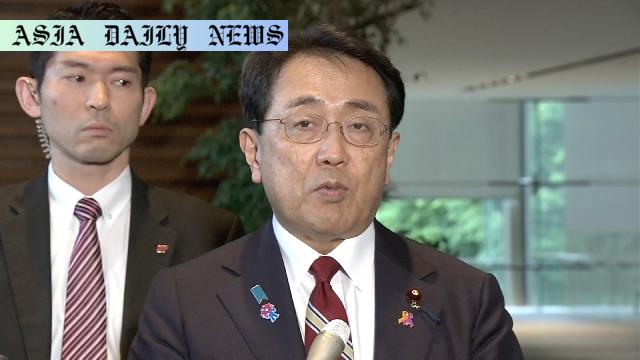Tariff: Japan aims to protect national interests in trade talks with the US, focusing on achieving a win-win resolution by next month.
Japan prepares for its third round of tariff talks with the US next week.
Focus remains on resolving auto import tariffs imposed by the US and protecting Japan’s carmakers.
A timeline is set to achieve a resolution by next month, aligning with the G7 summit.

Japan Prepares for Critical Tariff Negotiations with the United States
Japan is gearing up for a pivotal round of trade discussions with the United States, with a particular emphasis on automobile import tariffs that have been a point of contention since the Trump administration. These tariffs are causing significant challenges for Japan’s automotive sector, one of its pivotal industries, affecting exports crucial to the nation’s economic health. The upcoming talks, scheduled to take place in Washington next week, have compelled Japanese officials to devise a clear, strategic approach to securing an agreement that benefits both nations.
The discussions are being spearheaded by a dedicated tariff task force led by Economic Revitalization Minister Akazawa Ryosei and Chief Cabinet Secretary Hayashi Yoshimasa. The team is tasked with safeguarding Japan’s national interests amid negotiations, which Akazawa emphasized post-meeting. According to him, it’s imperative to protect sectors that are integral to Japan while maintaining a collaborative tone that prioritizes mutual benefit. “The priority is to achieve an agreement with the United States that is a win-win for both countries,” he added during a recent media briefing.
Economic Stakes and Strategic Priorities
Japan’s motivation to expedite the negotiation process stems from the looming economic ramifications for its auto industry. The imposed US tariffs not only place direct financial pressure on Japanese carmakers but could potentially disrupt the supply chain dynamics, making cars and automotive parts less competitive in the US market. This could have cascading effects on employment and innovation tied to the automotive sector within Japan.
In light of these challenges, Japan sees the upcoming G7 summit in Canada as a key milestone to showcase progress on the trade front. The government is thus aiming to conclude an agreement before the summit’s mid-June date, using the event as an opportunity to highlight strengthened trading ties with one of its most crucial partners. As Japan pushes for a resolution, the dynamics of balancing trade negotiations with national interests are set to define the course of these discussions.
Striking a Balance for Mutual Gains
Throughout the negotiation process, Japan is seeking to achieve a balance of interests that aligns with its priority of economic resilience while fostering stronger US-Japan trade relations. Buy-in from US stakeholders will likely hinge on showcasing the benefits to American industries, particularly in agriculture or industrial sectors, ensuring that the deal has bipartisan support domestically in the US.
This delicate balancing act underscores the complexities of modern trade negotiations, which extend beyond simple tariffs to include considerations of long-term economic alignment. Both nations have significant stakes in reaching a mutually beneficial agreement that addresses their respective political and economic contexts. Japan’s emphasis on achieving a win-win outcome is, in part, a reflection of these wider priorities and its aspiration to maintain its role as a global trade leader.



Commentary
Balancing National and Global Trade Interests
Japan’s efforts to address US-imposed tariffs on automotive imports underscore the intricate and high-stakes nature of international trade negotiations. The strategy presented by Japan’s leadership, which puts emphasis on protecting national interests while fostering collaboration, reflects a nuanced understanding of the geopolitical and economic landscape. With the automotive industry representing a bulwark of Japan’s economy, it is no surprise that the stakes are remarkably high in these discussions.
A Lesson in Strategic Diplomacy
One cannot ignore the broader implications of these negotiations for global trade practices. Japan’s focus on fostering a win-win agreement sets an example for how nations can approach trade conflicts with a constructive mindset. Rather than resorting to retaliatory measures, Japan has opted for diplomacy and mutual benefit as guiding tenets. This approach not only enhances its reputation as a pragmatic power but also helps preserve long-term trade partnerships.
Prospects for a Positive Outcome
If Japan succeeds in securing a favorable outcome, the implications could be substantial, not only for its economy but also for the broader dynamics of US-Japan relations. A strengthened trade relationship here could pave the way for resolving other contentious issues and open doors for greater cooperation on pressing global issues, such as climate change and technology innovation. By addressing the tariff challenge thoughtfully and proactively, Japan is laying the groundwork for a future characterized by greater collaboration and shared prosperity.